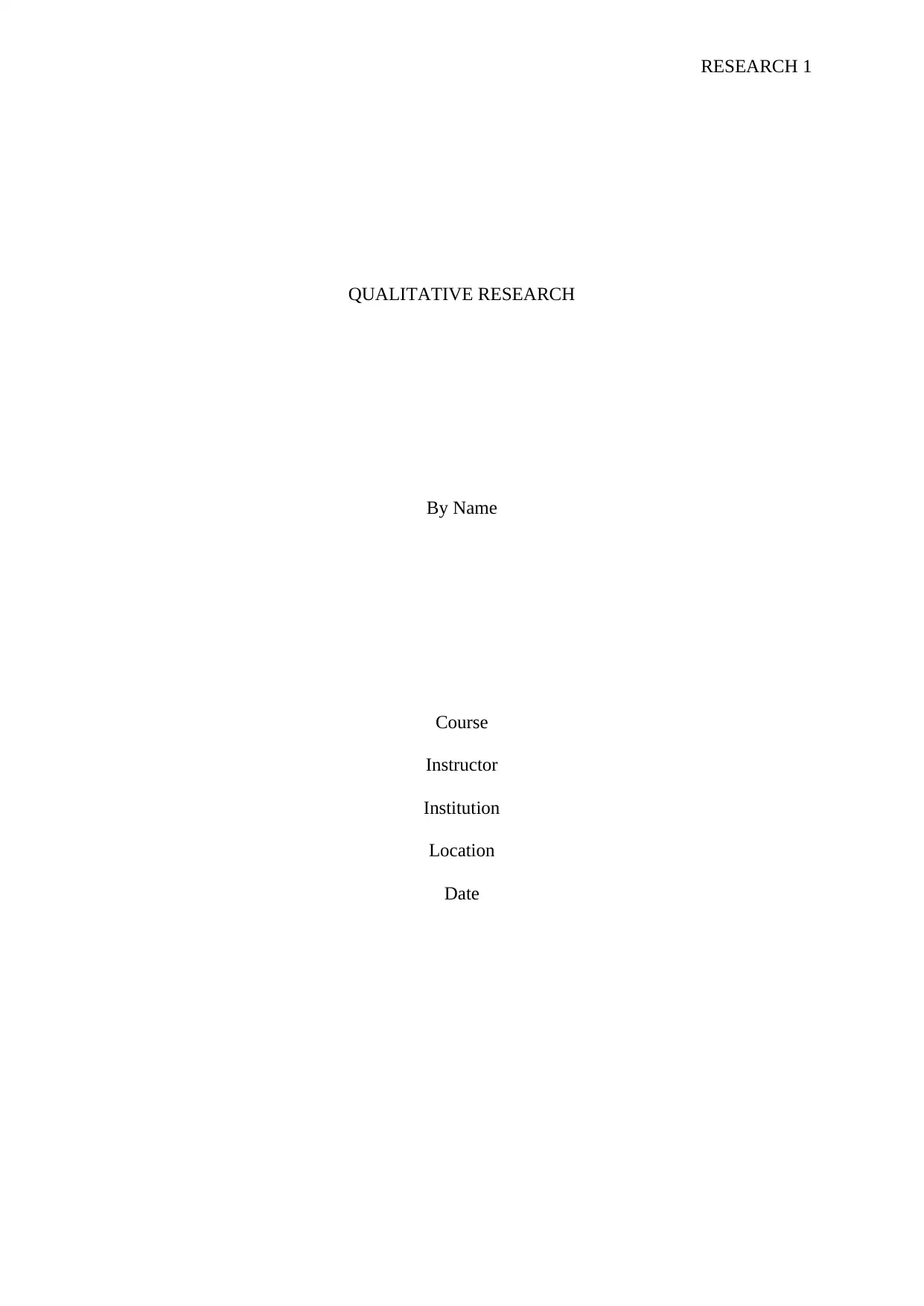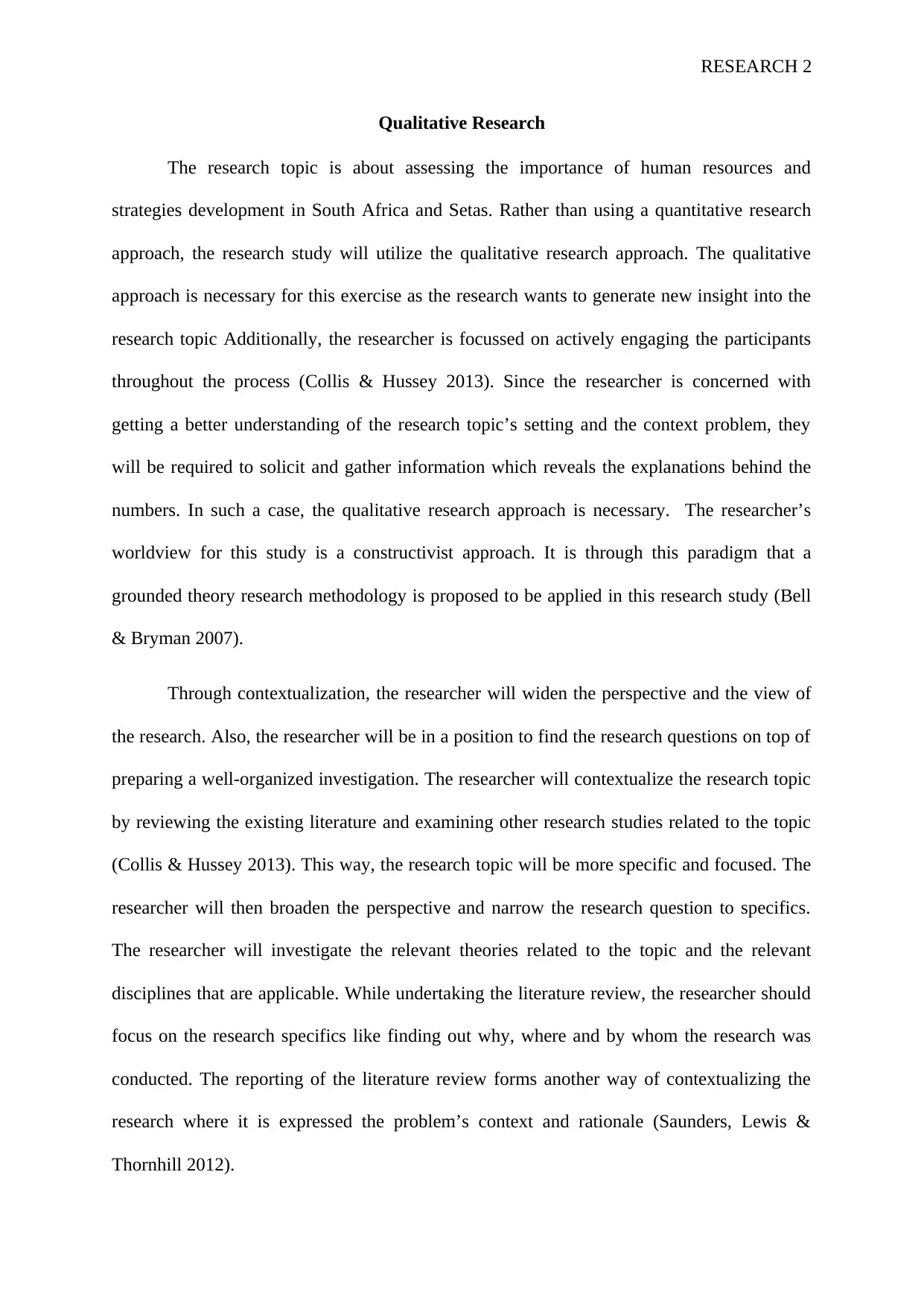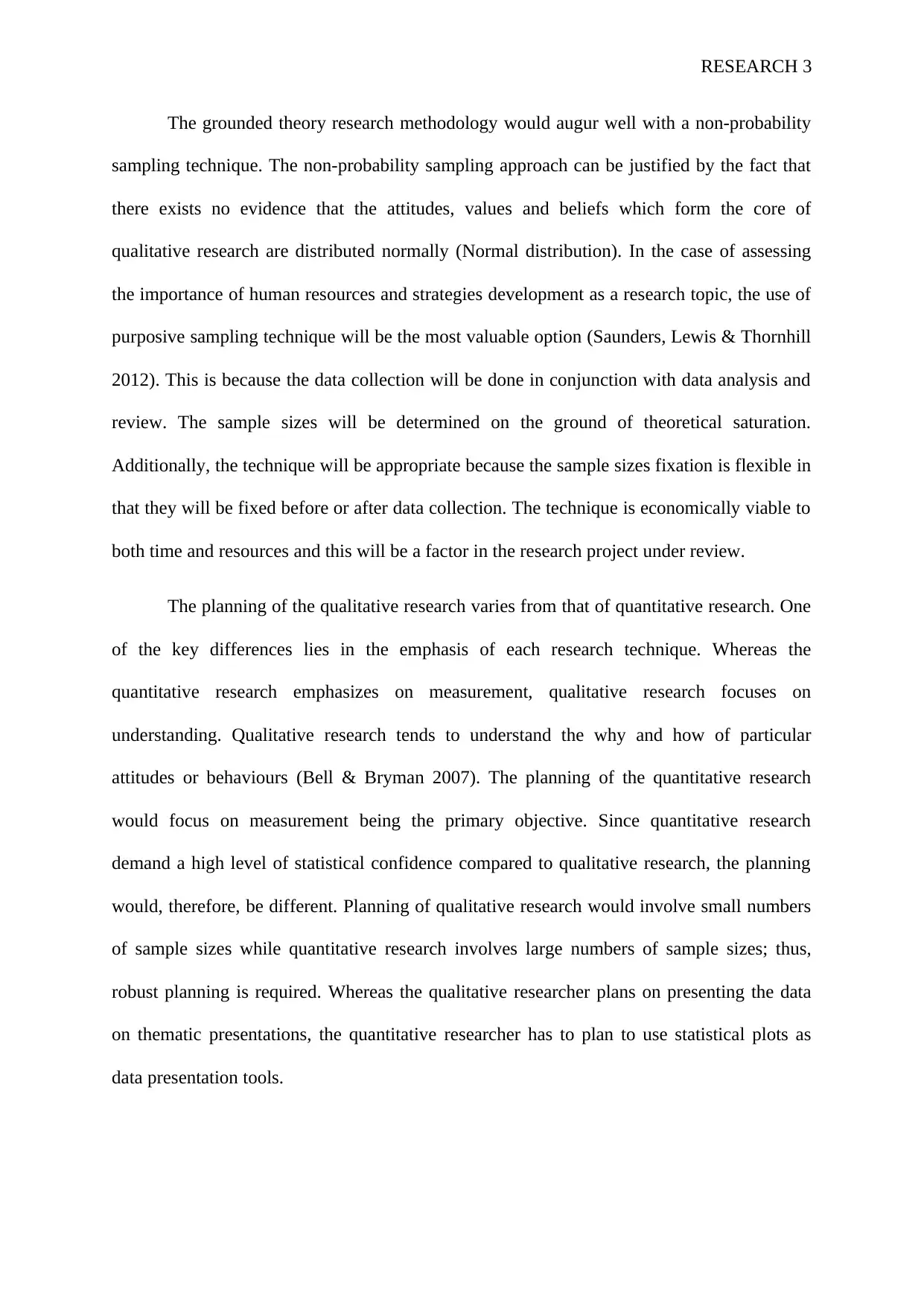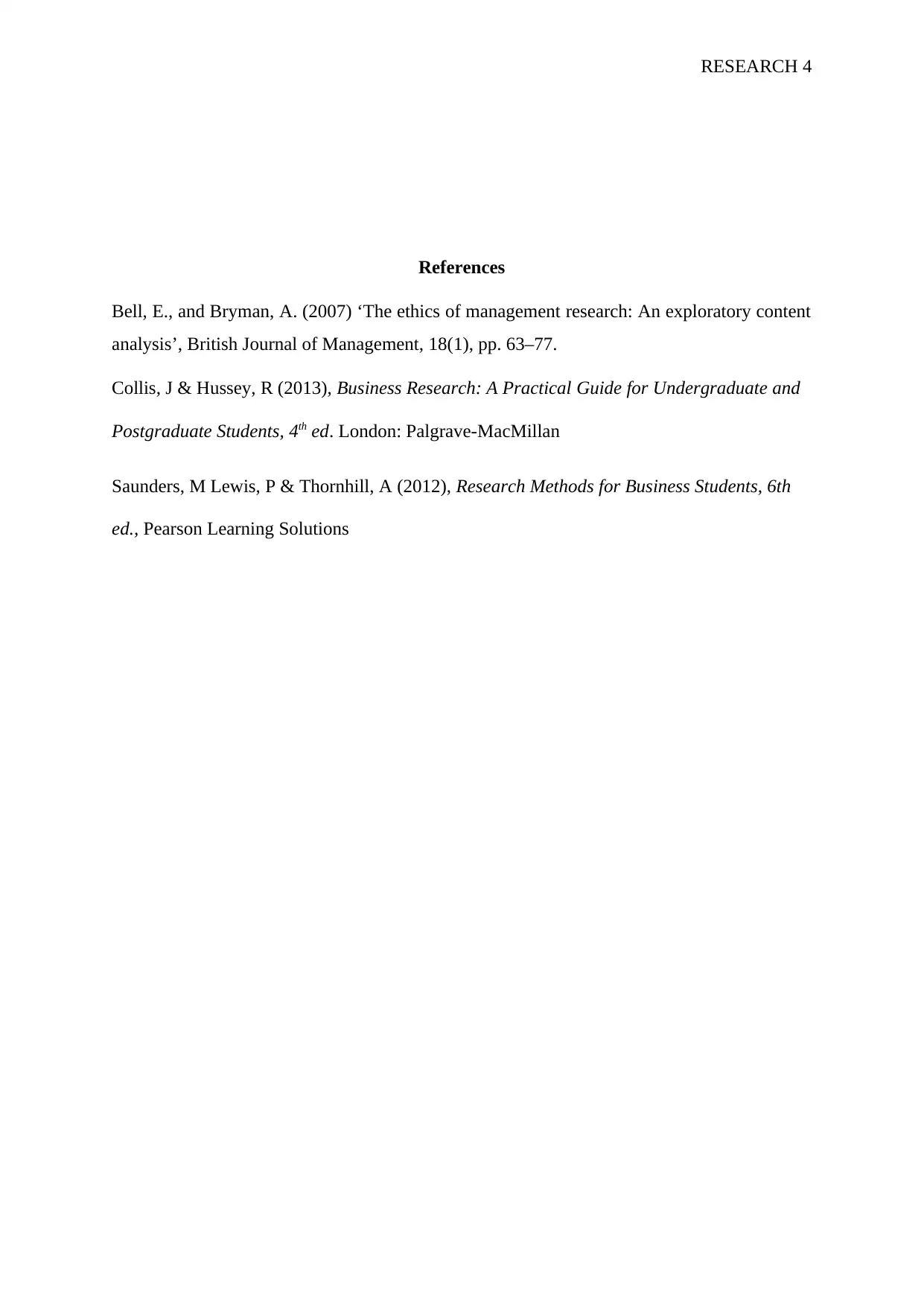Qualitative Research Report: HR Development in South Africa
VerifiedAdded on 2022/12/15
|4
|784
|259
Report
AI Summary
This report presents a qualitative research study focused on assessing the importance of human resources and strategies development in South Africa and SETAs. The research utilizes a constructivist worldview and employs a grounded theory research methodology. The study emphasizes the need for a qualitative approach to generate new insights and understand the context surrounding the research topic, including the use of purposive sampling techniques. The researcher contextualizes the topic through literature review, focusing on the 'why, where, and by whom' of previous studies. The planning of the qualitative research differs significantly from quantitative research, with a focus on understanding rather than measurement, smaller sample sizes, and thematic data presentation. The report highlights the significance of human resource development strategies in the context of South Africa's financial progress and development programs, as well as the role of statutory National Skills Authority.
1 out of 4











![[object Object]](/_next/static/media/star-bottom.7253800d.svg)